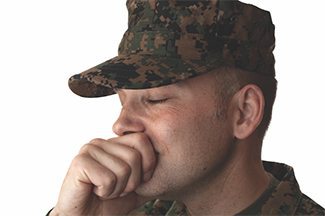A study by researchers at the University of South Carolina in Columbia reveals that sleep disorders in veterans has increased six-fold over an 11-year period.
A sample of more than 9.7 million U.S. veterans seeking care in the Veterans Health Administration system between 2000 and 2010 showed the prevalence of sleep disorders increased from less than 1% in 2000 to nearly 6% in 2010, according to the study published in the July issue of the journal Sleep.
Veterans who had post-traumatic stress disorder, other mental disorders or combat experience suffered from the largest number of sleep disorders. Results also show that the prevalence of PTSD tripled during the study period.
“Veterans with PTSD had a very high sleep disorder prevalence of 16%, the highest among the various health conditions or other population characteristics that we examined,” says James Burch, an associate professor of epidemiology and biostatistics at USC. “Because of the way this study was designed, this does not prove that PTSD caused the increase in sleep disorder diagnoses. However, we recently completed a follow-up study, soon to be submitted for publication, that examined this issue in detail. In that study, a pre-existing history of PTSD was associated with an increased odds of sleep disorder onset.”
Sleep apnea was the most common sleep disorder diagnosis (47%), followed by insomnia (26%). Veterans with cardiovascular disease, cancer or other chronic diseases also experienced higher rates of sleep disorder diagnoses relative to those without these conditions.




